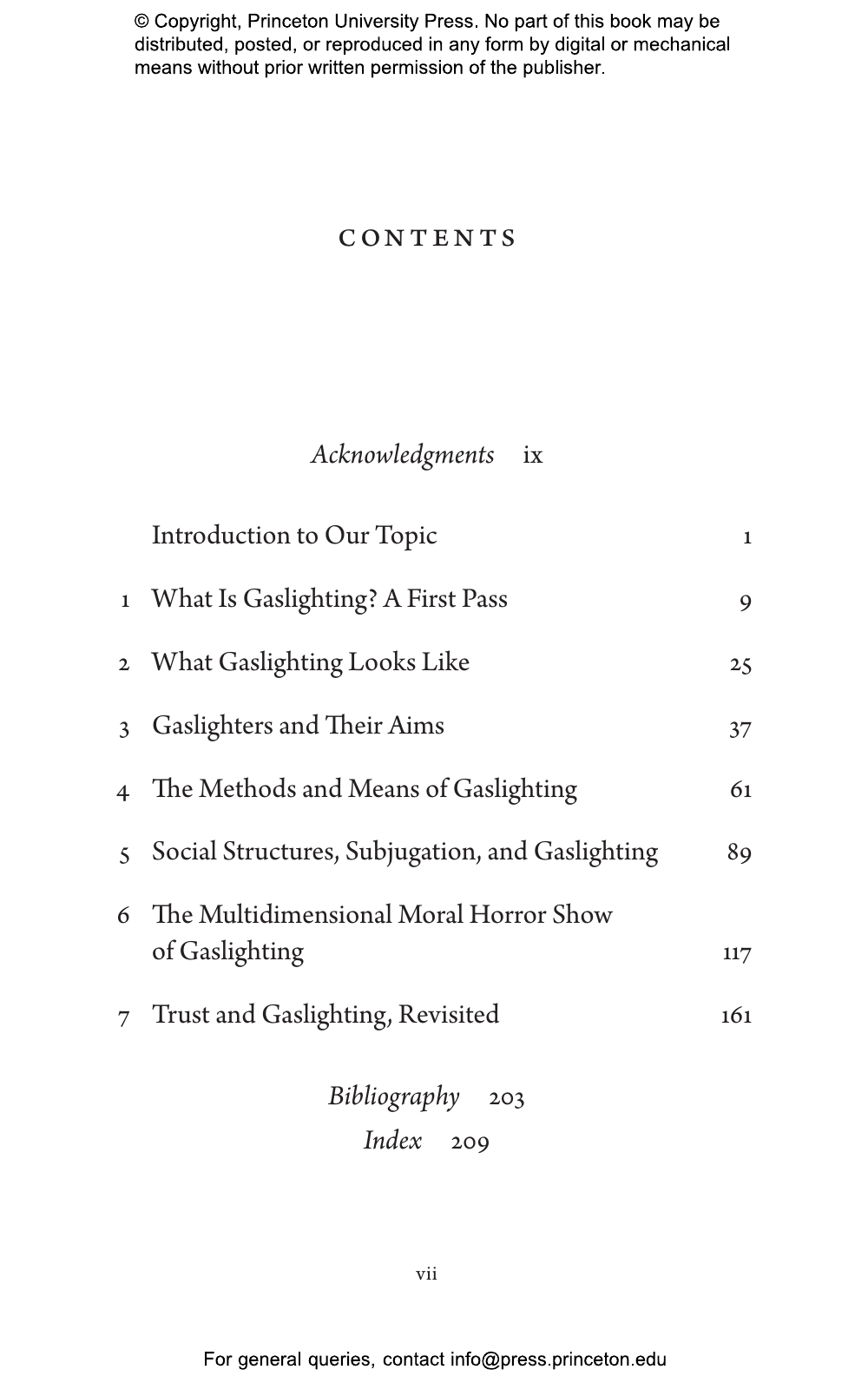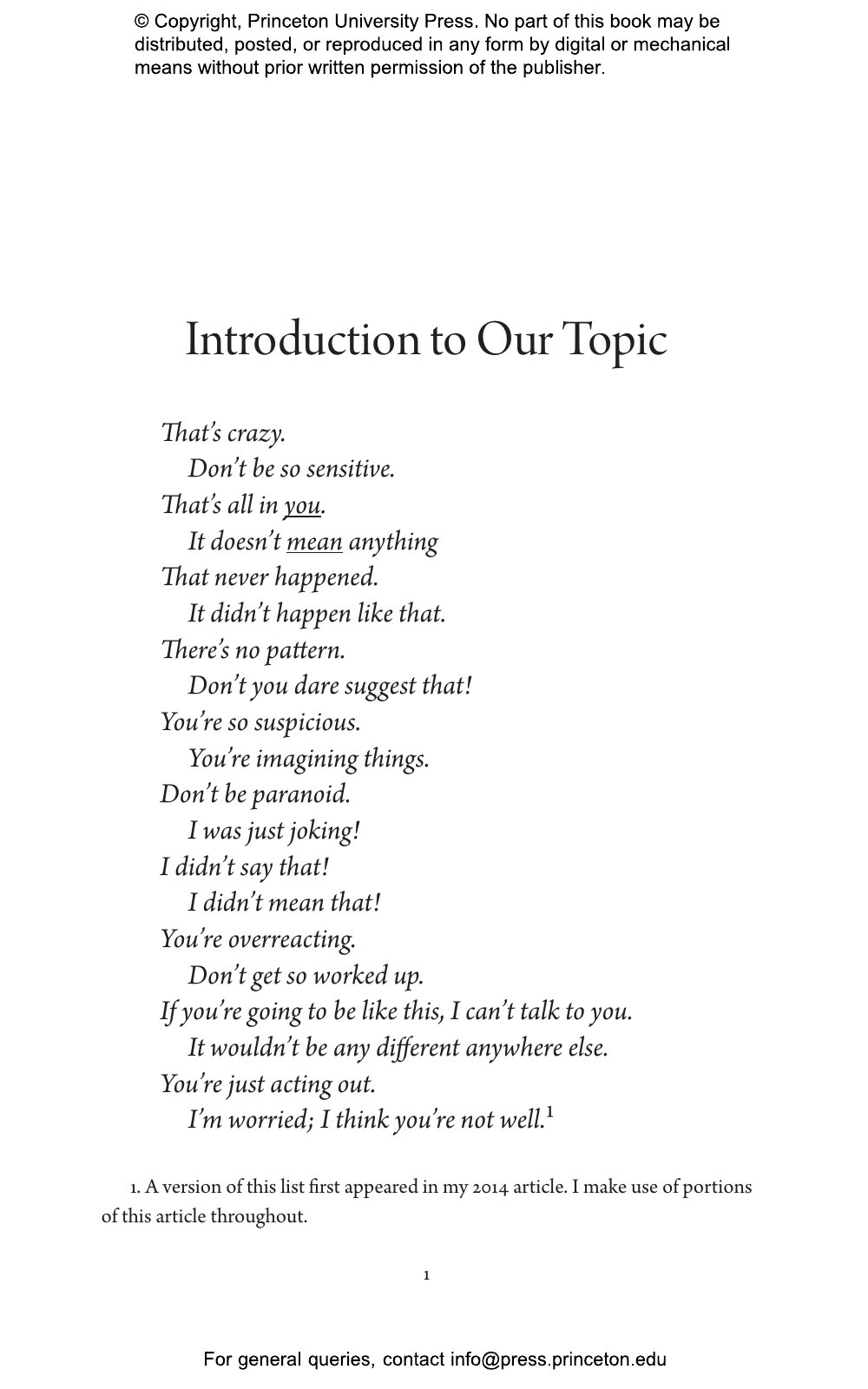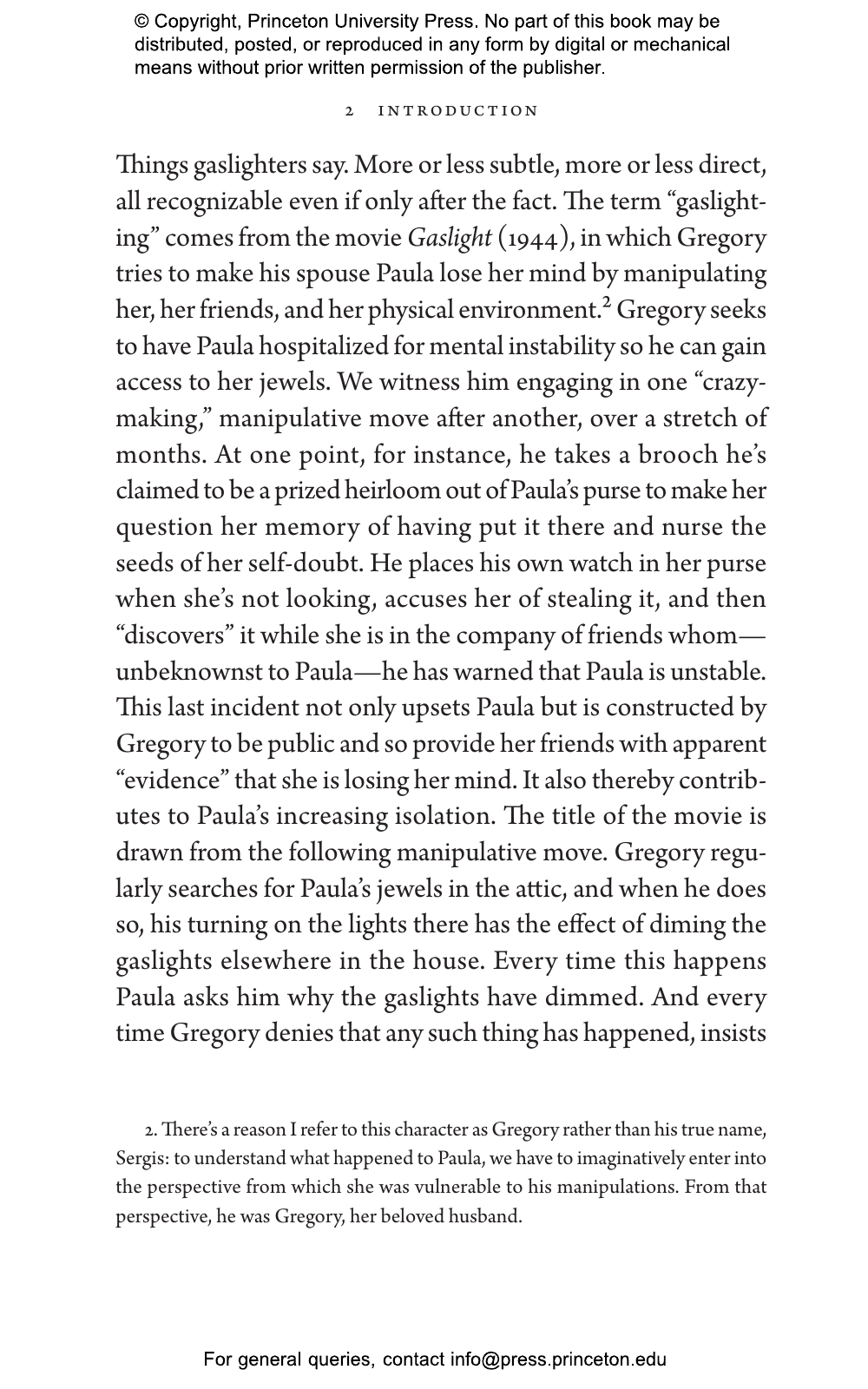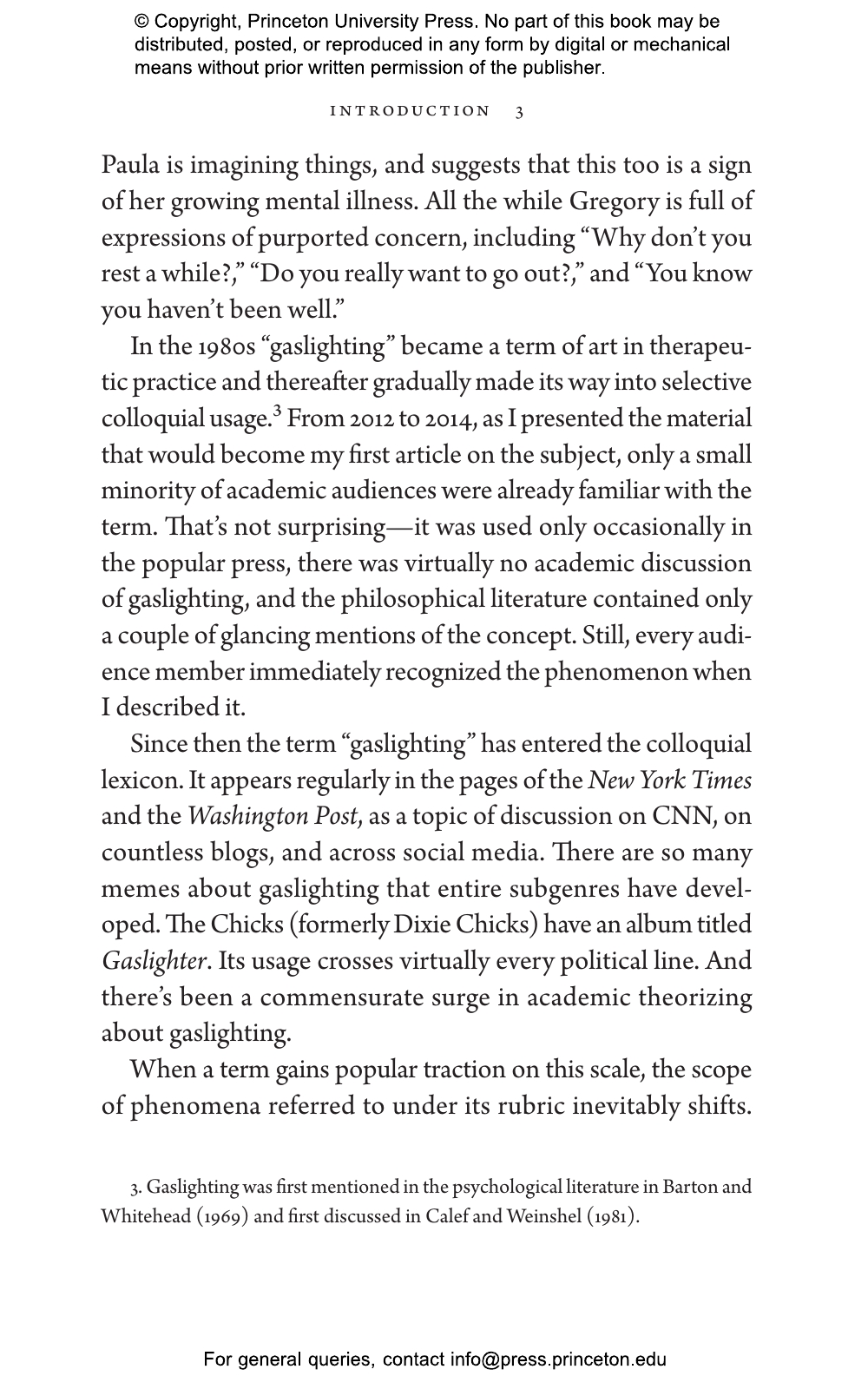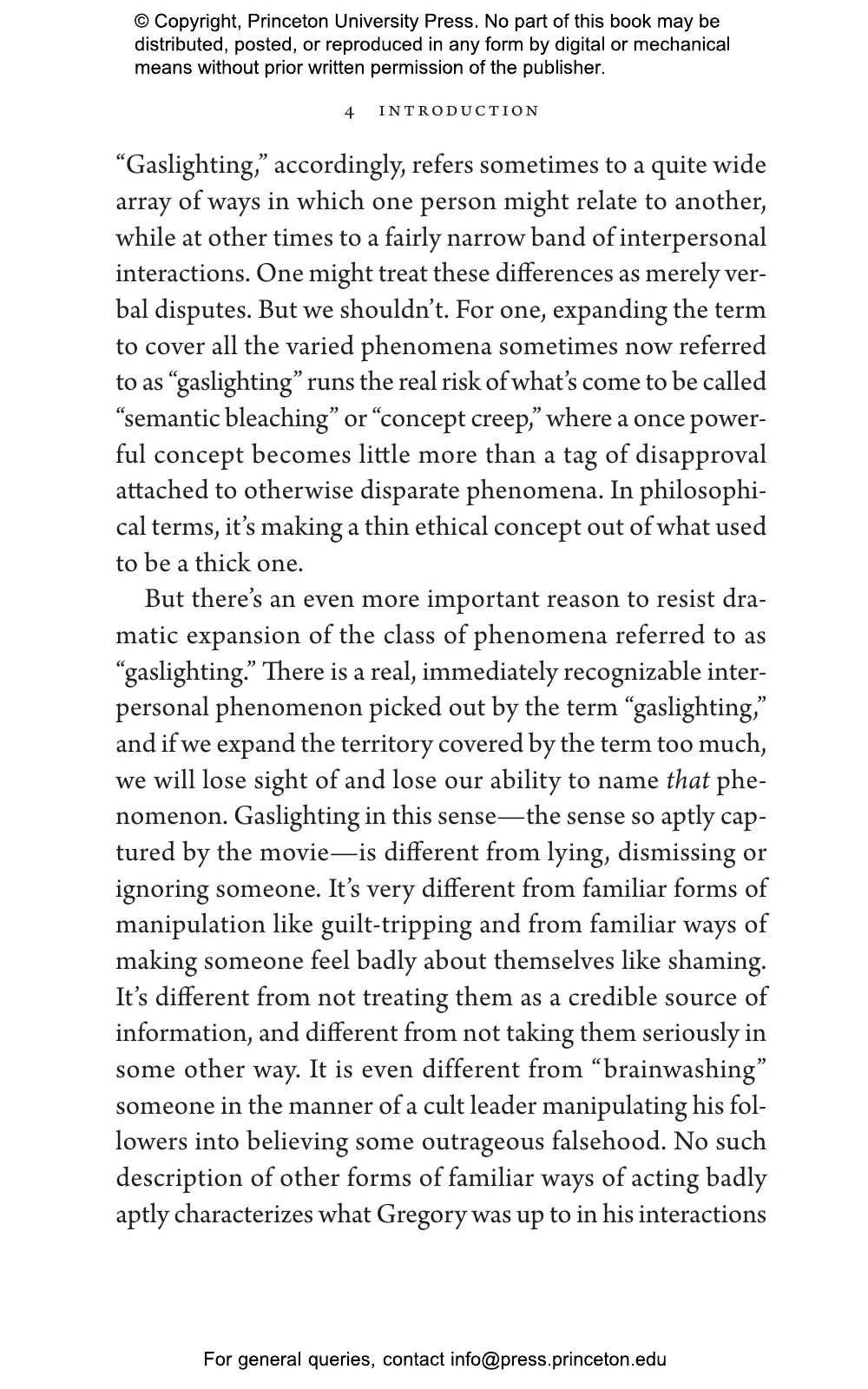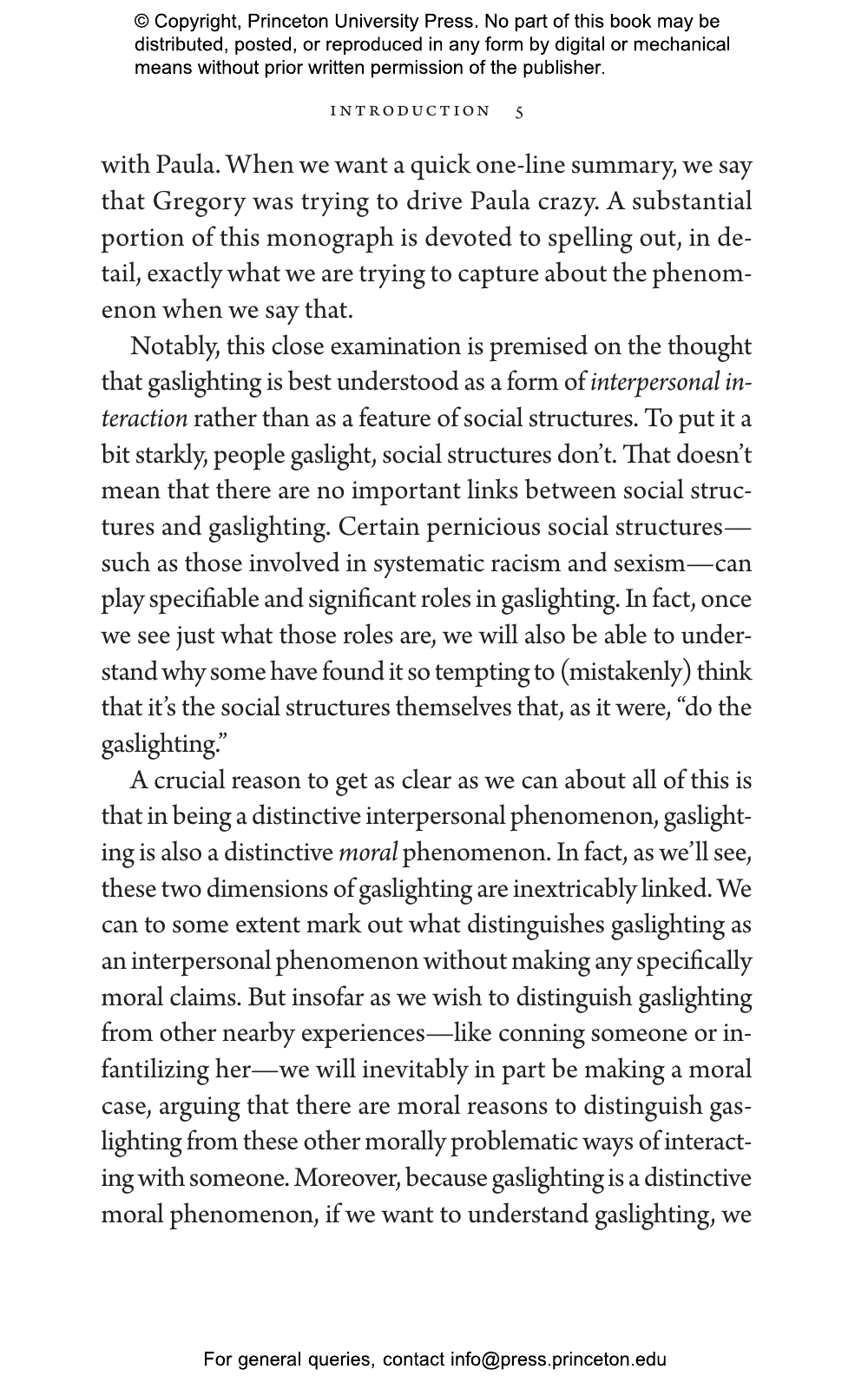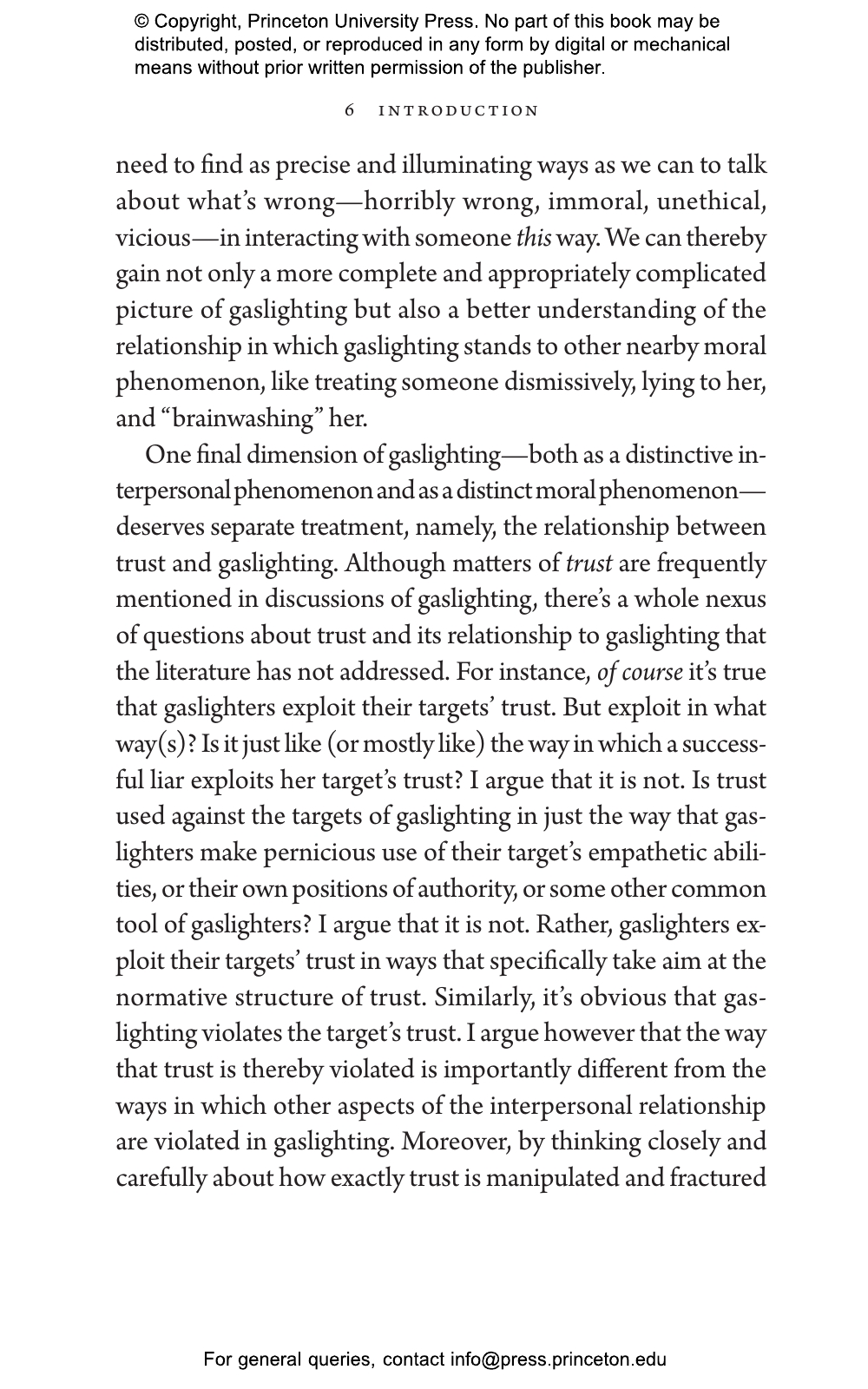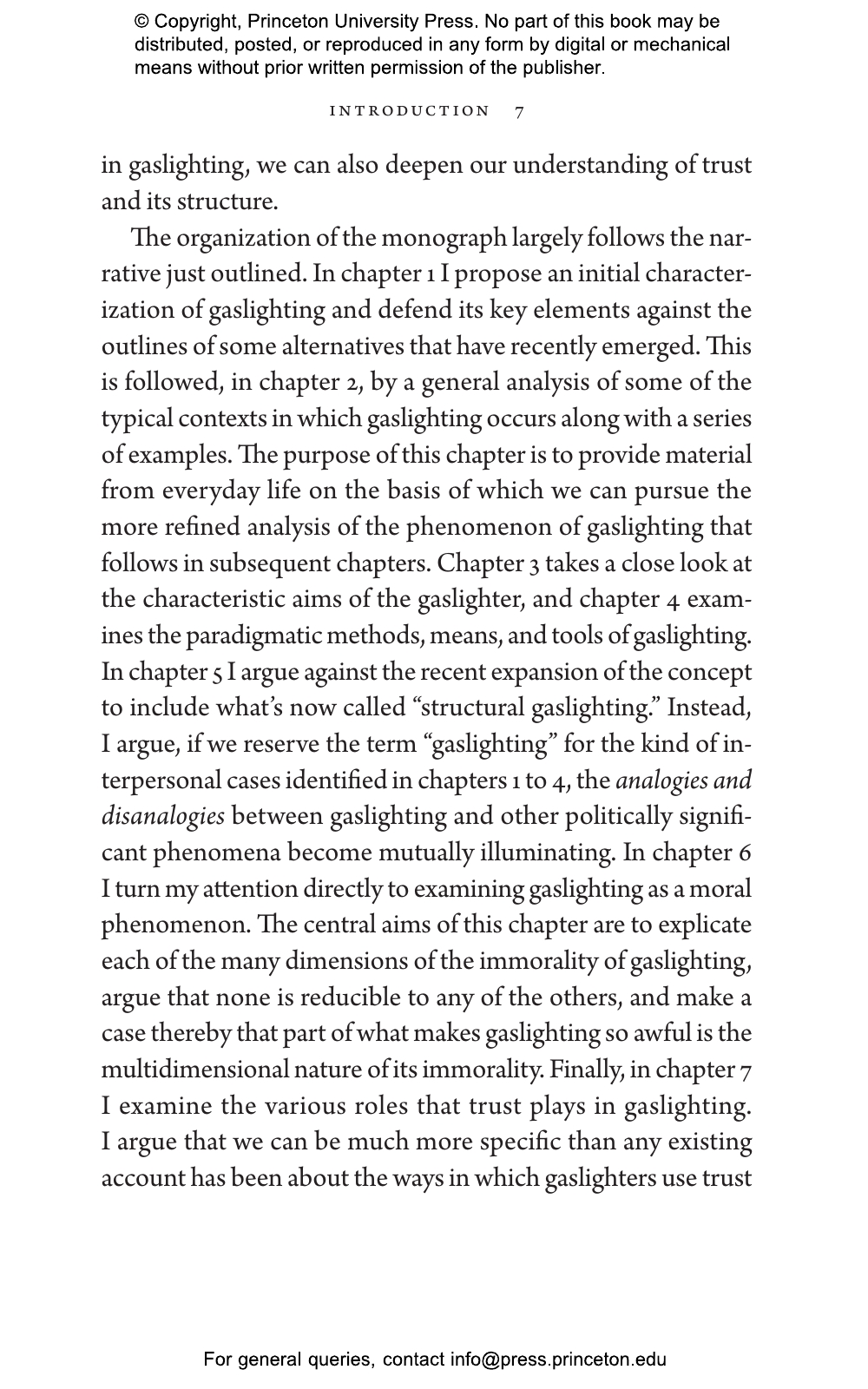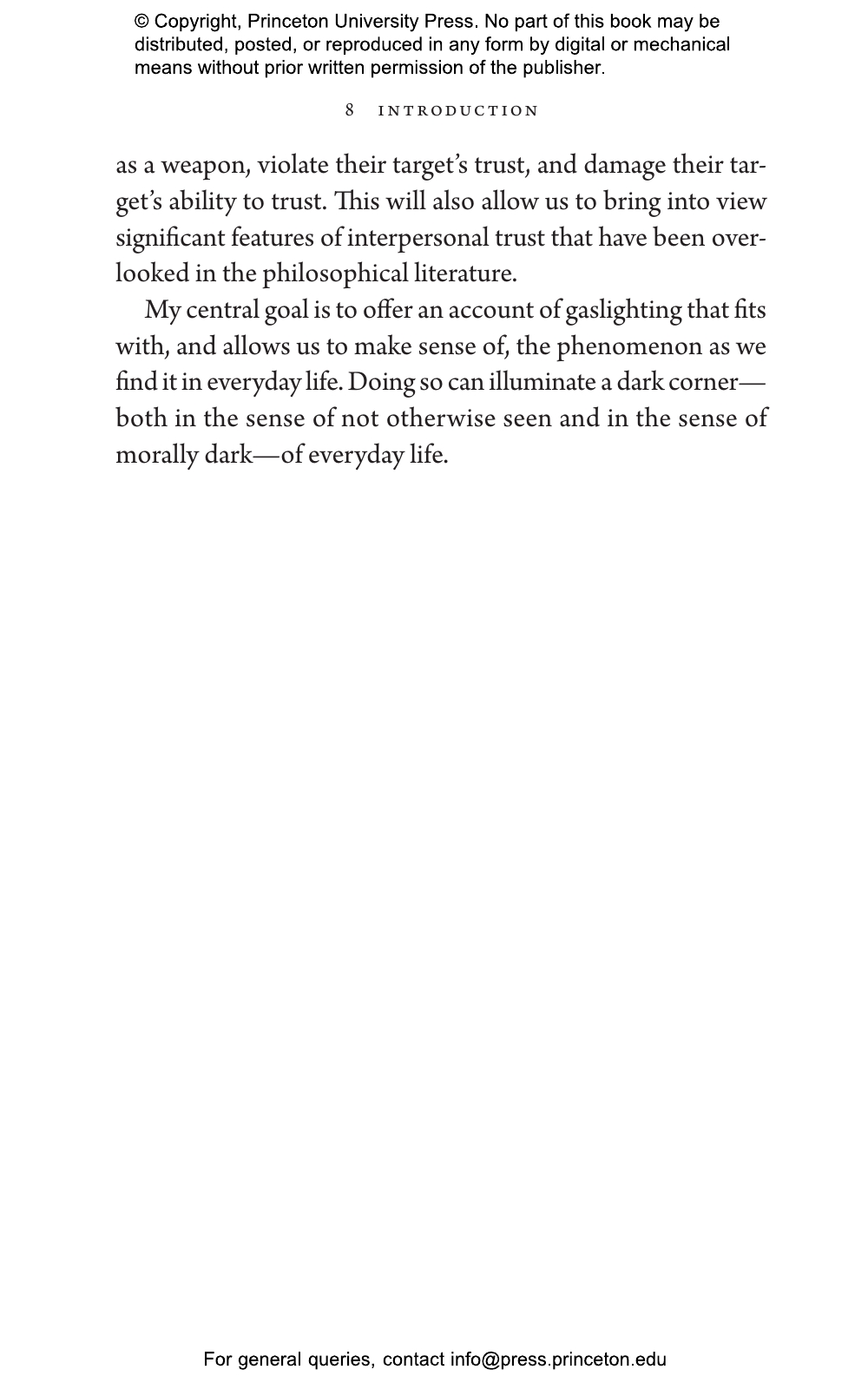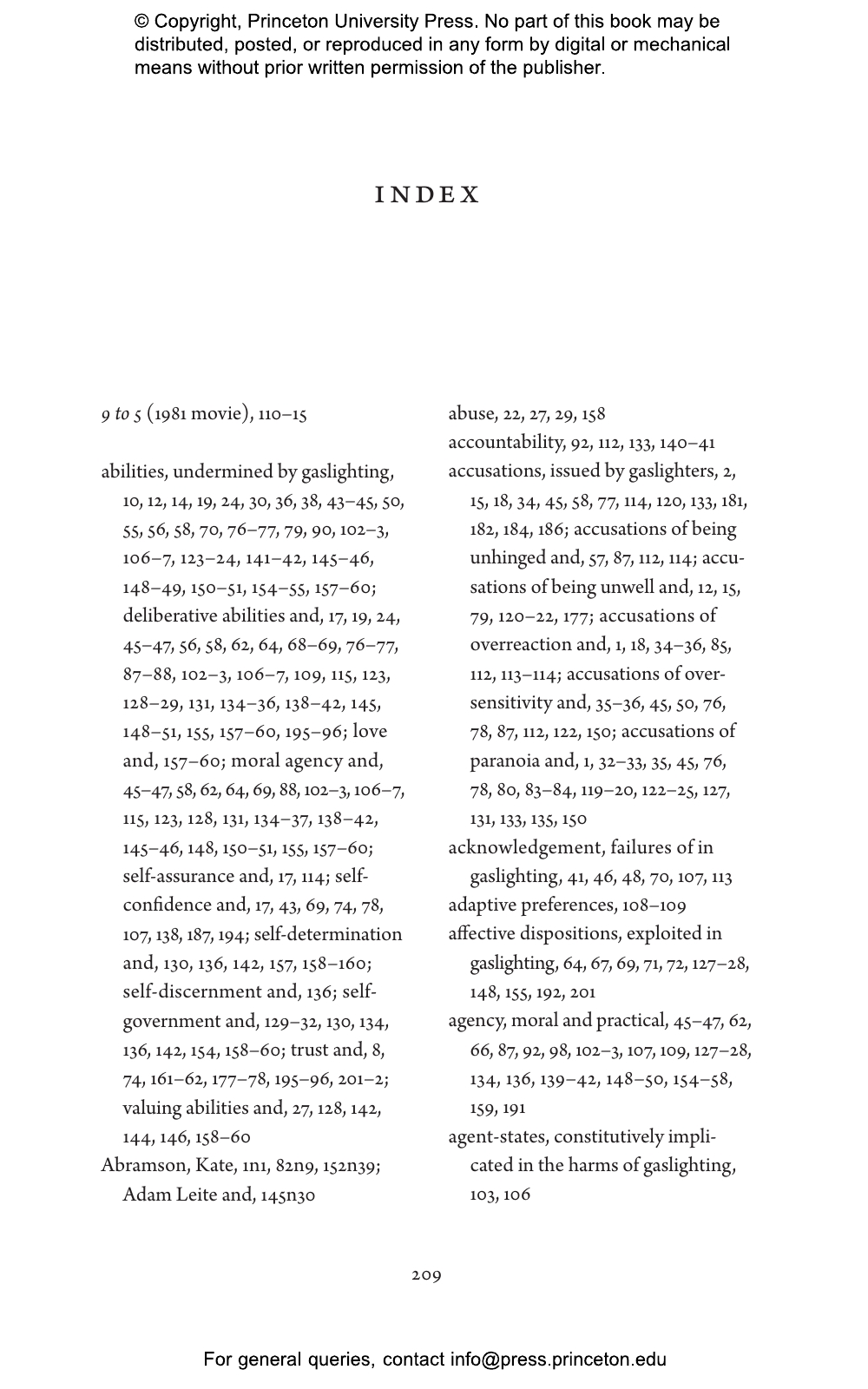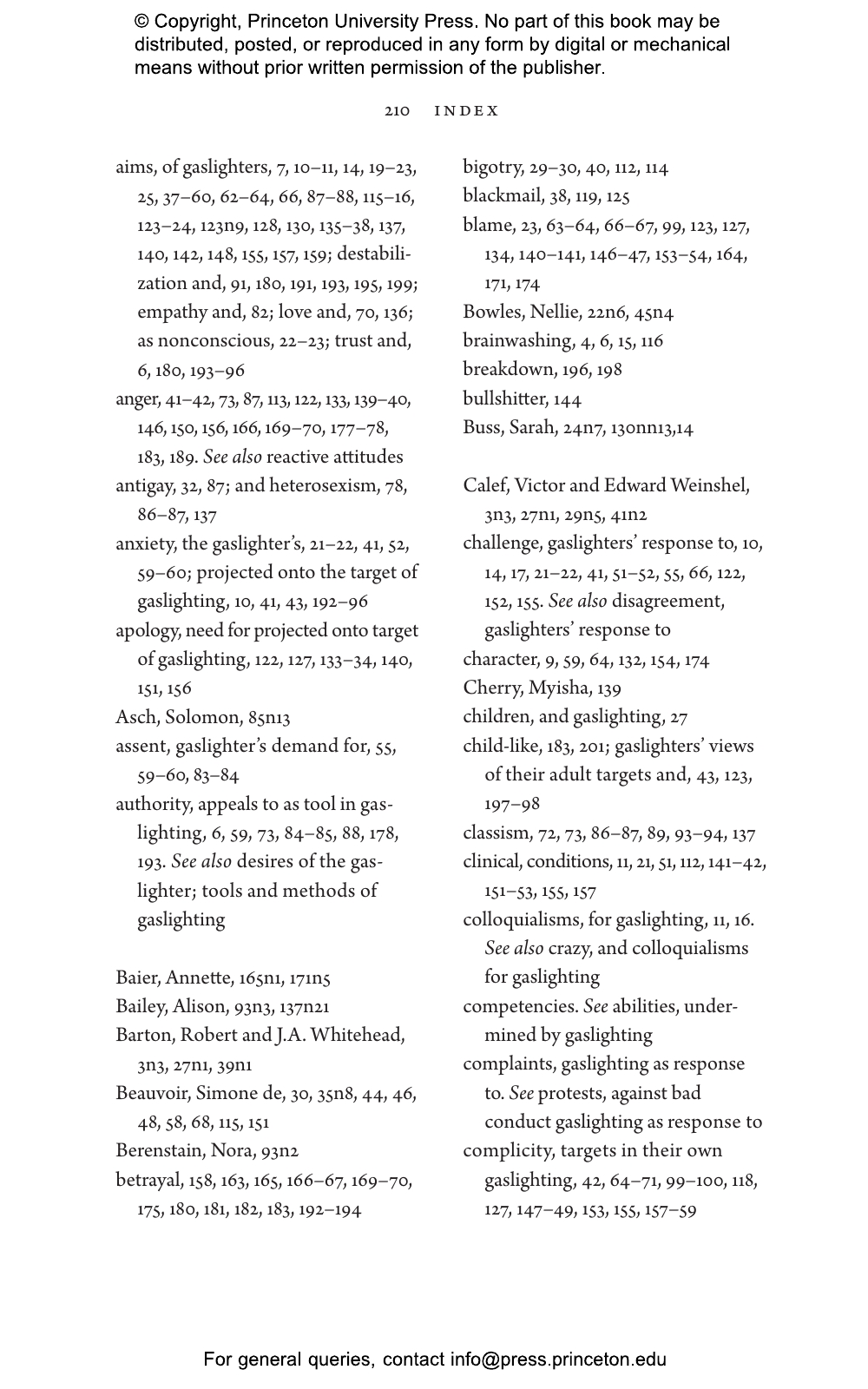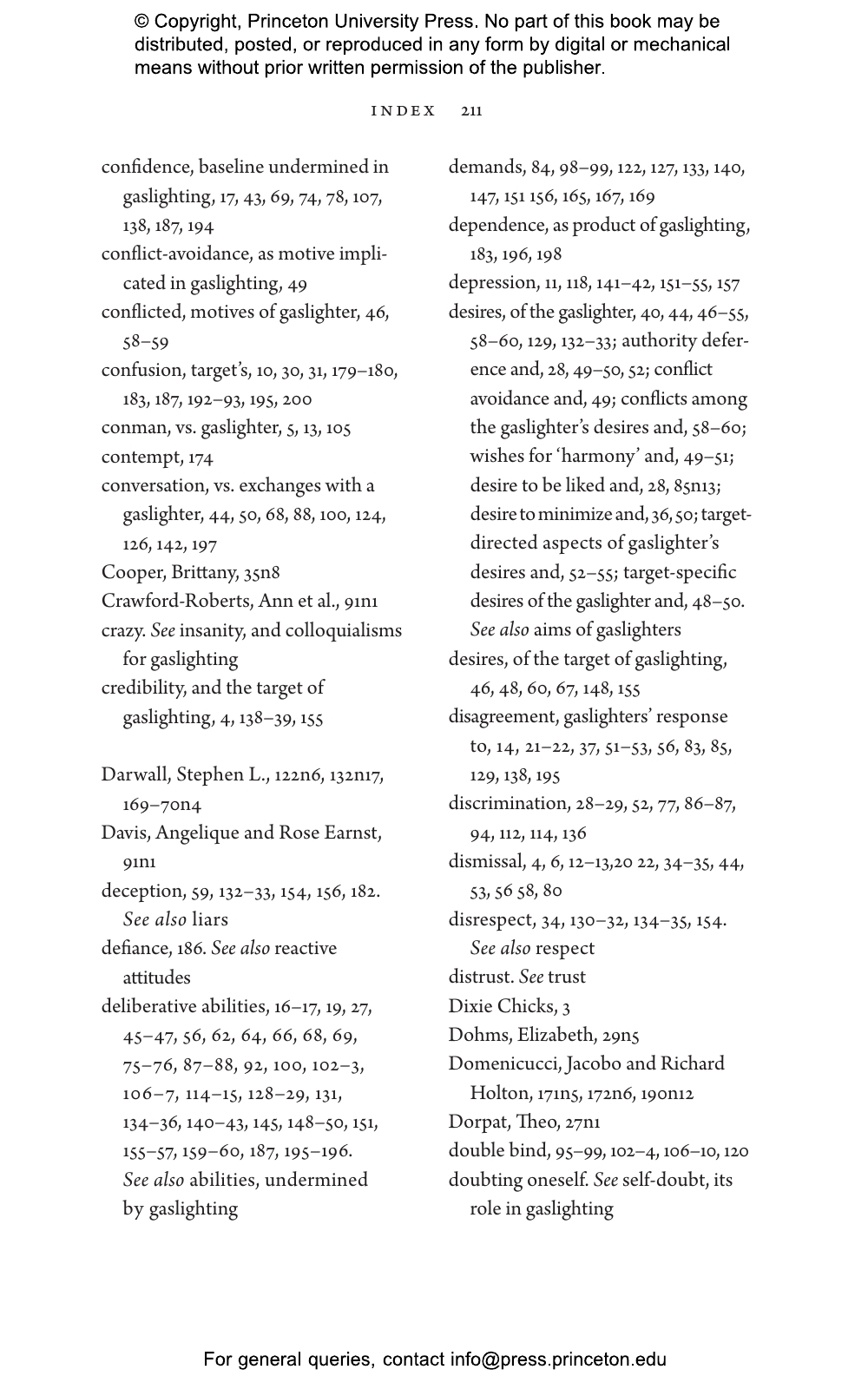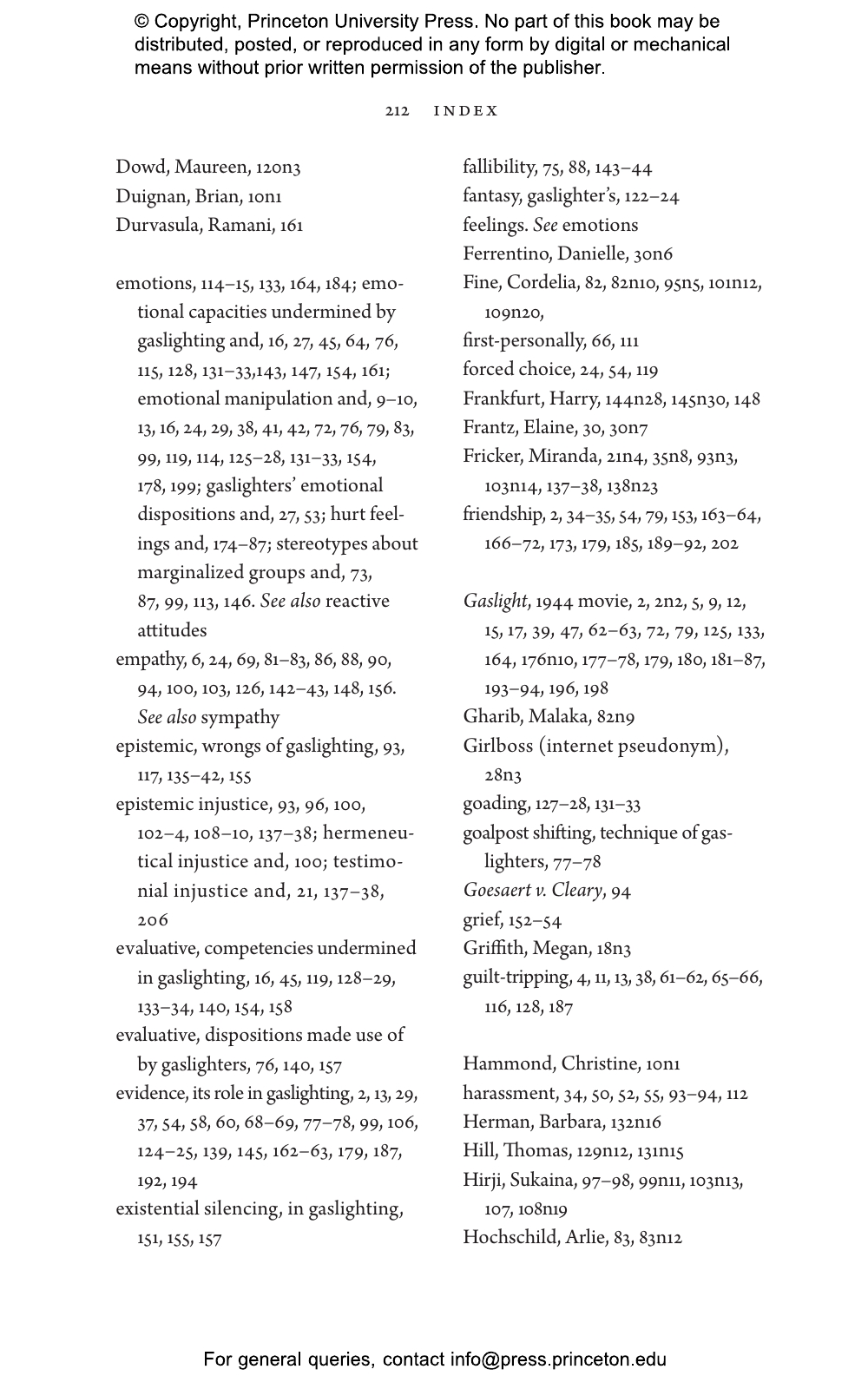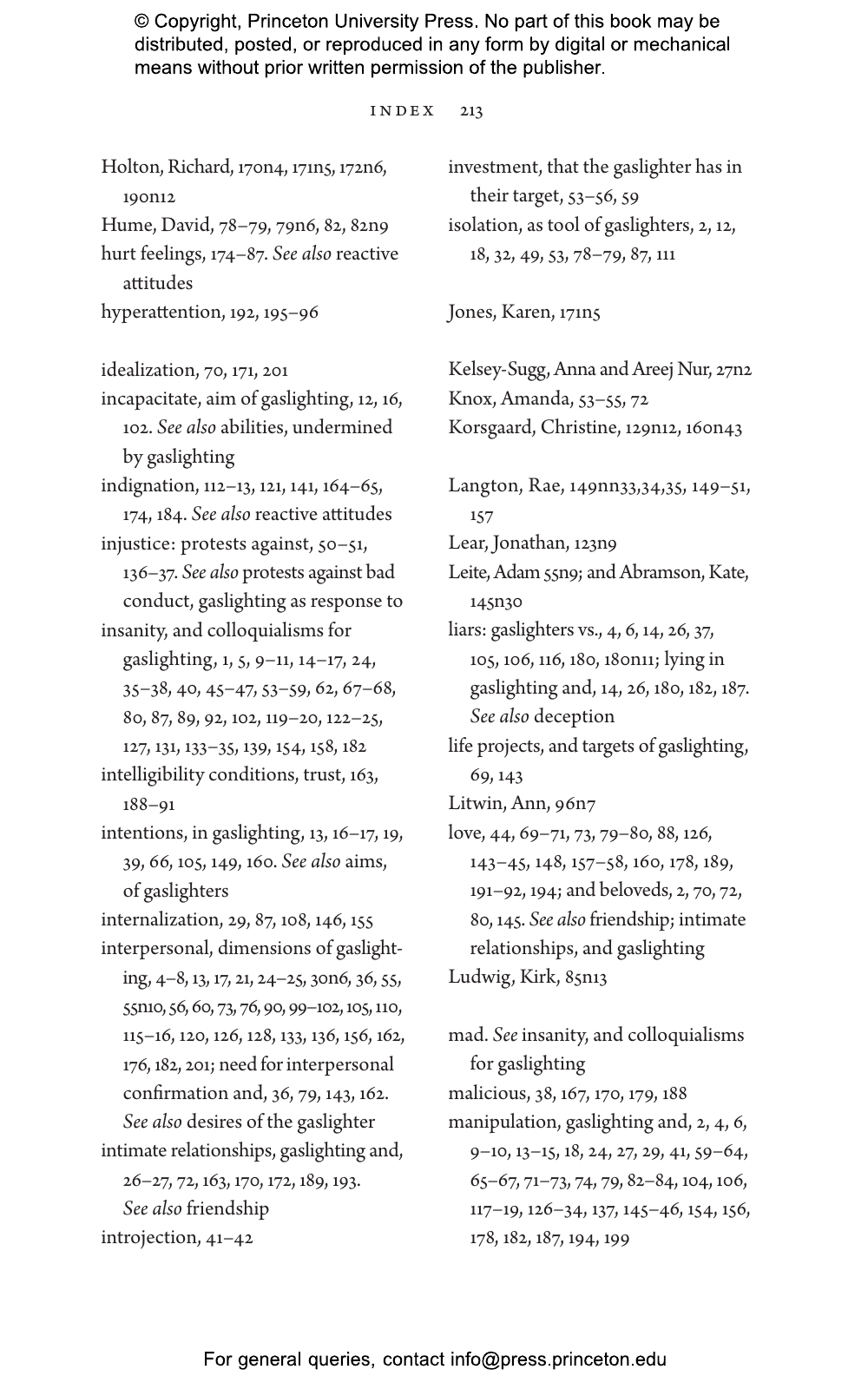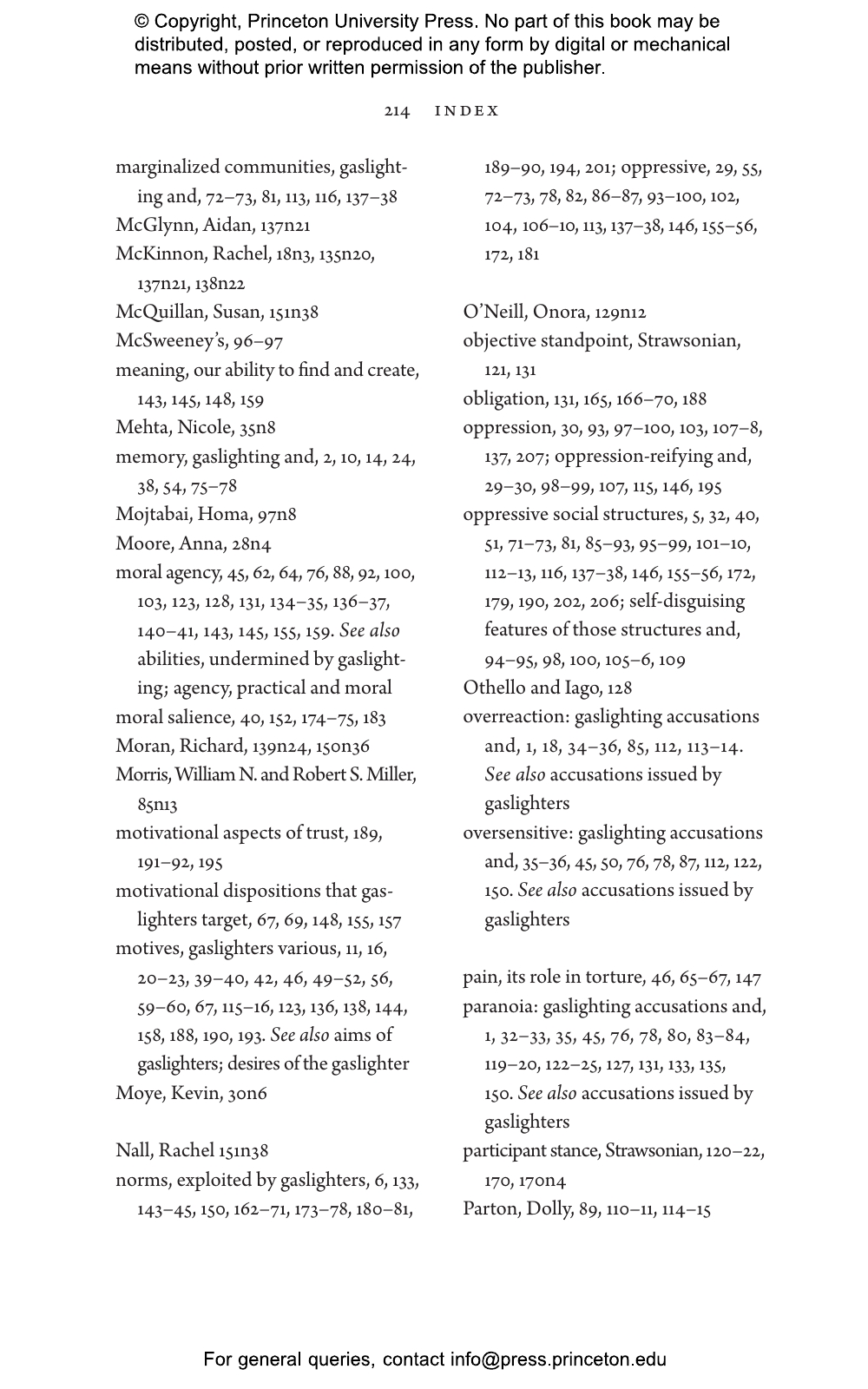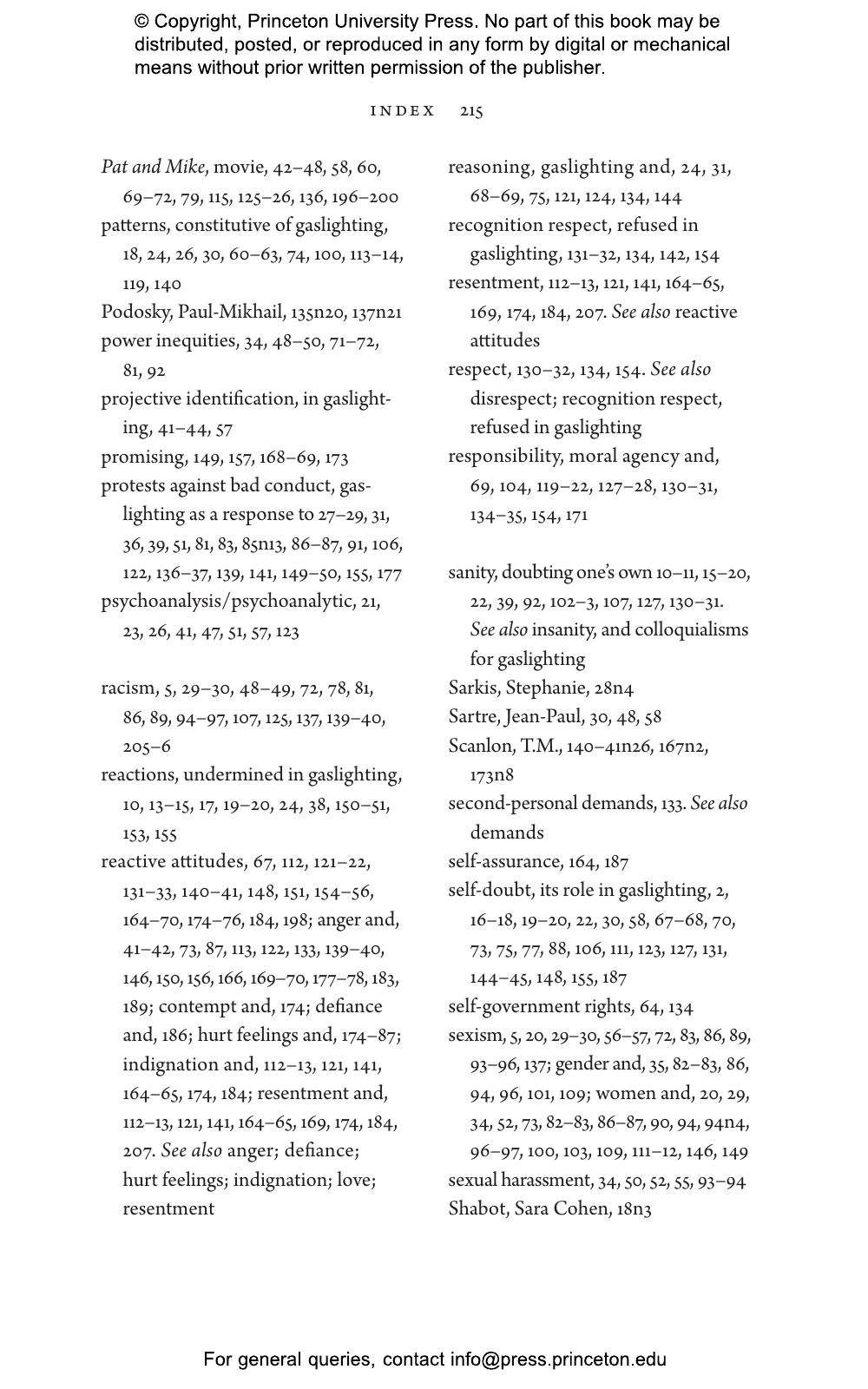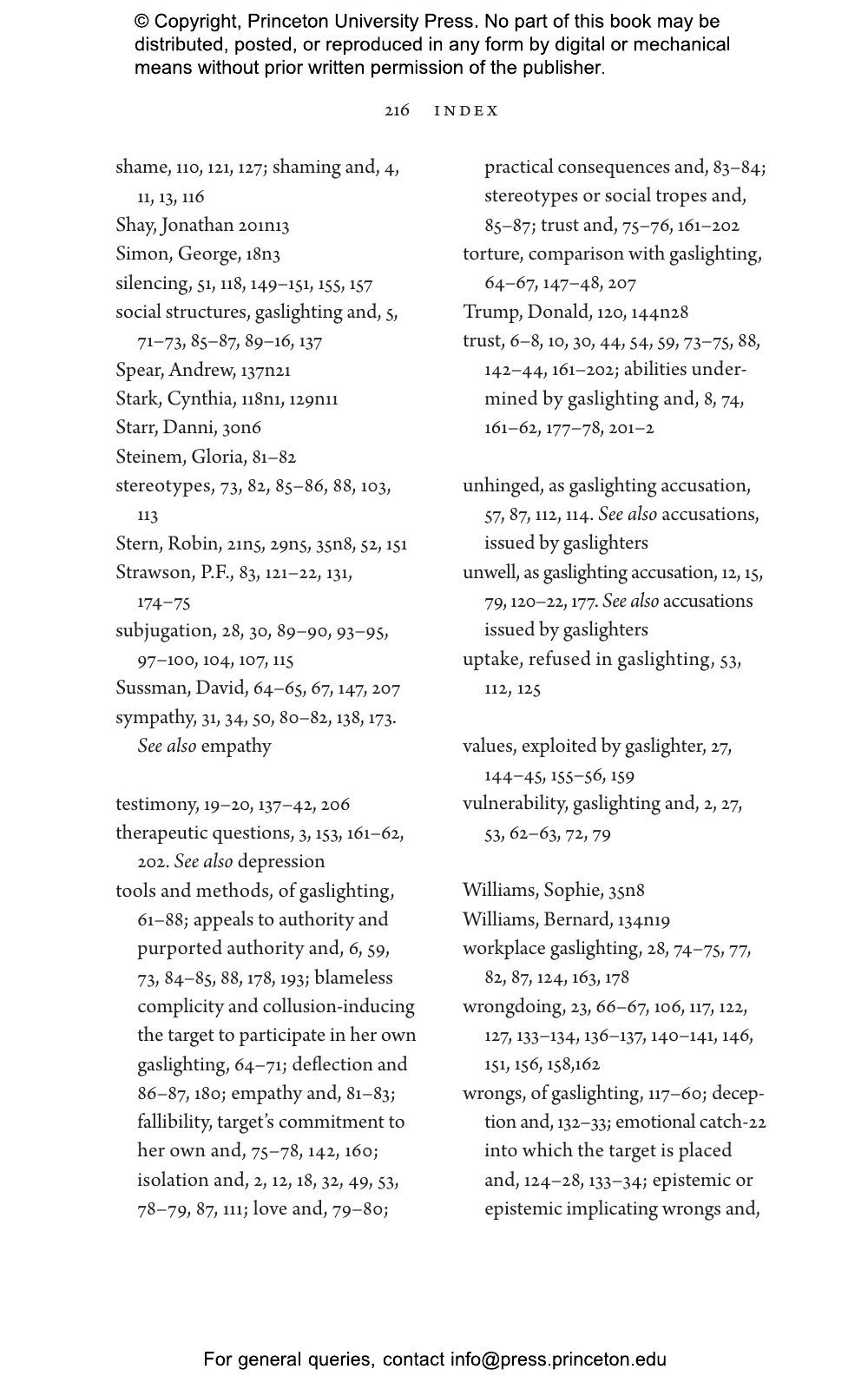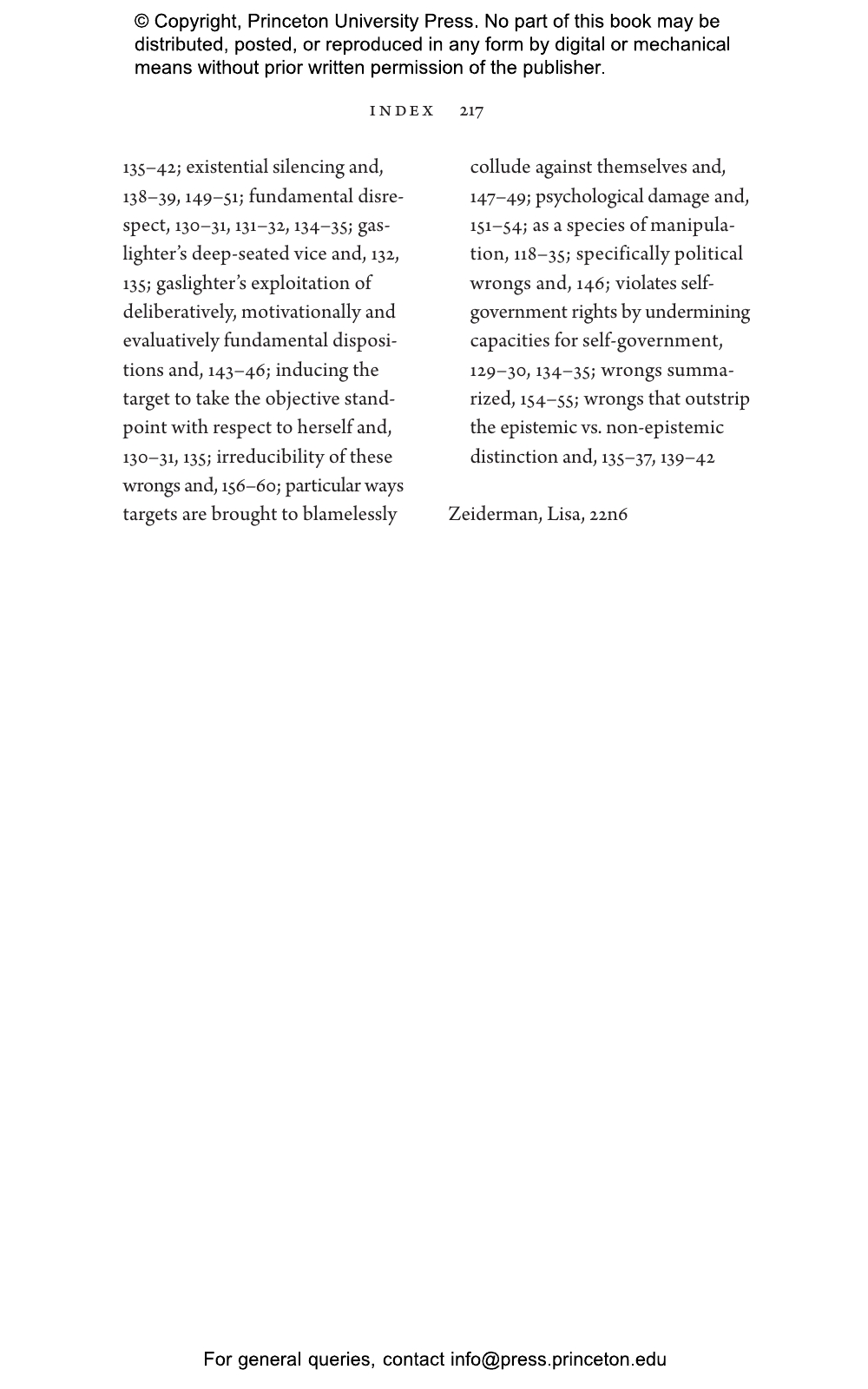“Gaslighting” is suddenly in everyone’s vocabulary. It’s written about, talked about, tweeted about, even sung about (in “Gaslighting” by The Chicks). It’s become shorthand for being manipulated by someone who insists that up is down, hot is cold, dark is light—someone who isn’t just lying about such things, but trying to drive you crazy. The term has its origins in a 1944 film in which a husband does exactly that to his wife, his crazy-making efforts symbolized by the rise and fall of the gaslights in their home. In this timely and provocative book, Kate Abramson examines gaslighting from a philosophical perspective, investigating it as a distinctive moral phenomenon.
Gaslighting, Abramson writes, is best understood as a form of interpersonal interaction, a particular way of fundamentally undermining someone. The gaslighter, Abramson argues, aims to make his target experience herself as incapable of reasoning, perceiving, or reacting in ways that would allow her to form appropriate beliefs, perceptions, or emotions in the first place. He seeks not only to induce in her this unmoored sense of herself but also to make it a reality. Using examples and analysis, Abramson gives an account of gaslighting and its immorality, and argues that such a discussion can help us understand other aspects of social life—from racism and sexism to the structure of interpersonal trust.
"Abramson’s close examination of [the gaslighting] phenomenon is . . . helpful and enlightening."—Dodai Stewart, New York Times Book Review
"Rigorous and passionately argued."—Leslie Jamison, New Yorker
"An edifying exploration of the ubiquitous yet often misunderstood term. . . . [Abramson] makes salient points about the ways gaslighting traffics on trust, and ends on an uplifting note, encouraging readers to ‘be articulate and specific’ when describing experiences for which they might otherwise be gaslit. Patient readers will be rewarded."—Publishers Weekly
"[Abramson’s] approach to this hot-button issue is thoughtful. . . . Fuel for debate about the semantic and emotional injuries inherent in personal relationships and social marginalization."—Kirkus Reviews
"A fascinating, esoteric treatise on gaslighting, which includes not only what this psychological tactic involves, but what it doesn’t, on both the micro and macro levels."—Karen R. Koenig, New York Journal of Books
"A crisp new book. . . [in which] Abramson sets out to get a clearer view of gaslighting, distinguishing it from related harms such as lying, brainwashing or infantilizing."—Rhoda Feng, Times Literary Supplement
"[A] comprehensive guide to the phenomenon. . . .Indeed, one could approach this seminar as a guidebook on how to identify gaslighting in action, as well as how to protect oneself against those wishing to employ it by detailing the gaslighter’s motives and means of manipulation."—Megan Hughes, Redbrick Culture
"Finally a book that explains what ‘gaslighting’ is."—Martha Claeys, Trouw
"[T]he situations Abramson describes will find resonance with anyone who has been bullied or manipulated at work or in relationships."—Chris Nancollas, The Tablet
“On Gaslighting is an illuminating must-read for any student of the phenomenon. Considering crucial questions including the moral structure of gaslighting and its relationship with trust, Abramson deftly exposes the grave harms done by gaslighters—and, ultimately, the reclaiming power of naming those harms on the part of its victims.”—Kate Manne, author of Unshrinking: How to Face Fatphobia
“Abramson offers a rich and engaging analysis of the phenomenon that we have come to call ‘gaslighting.’ She explores the storylines of classic movies, the damaging interactions that sometimes shape everyday personal relationships, and even emotional manipulation that depends on social structures and institutions. The result is an original and illuminating examination of gaslighting in all of its moral and psychological complexity.”—Michele Moody-Adams, author of Making Space for Justice: Social Movements, Collective Imagination, and Political Hope
“On Gaslighting is an important book on an extremely timely topic. It is insightful, compelling, clearly written, and relevant to a wide range of interdisciplinary questions and topics.”—Jennifer Lackey, Wayne and Elizabeth Jones Professor of Philosophy, Northwestern University



